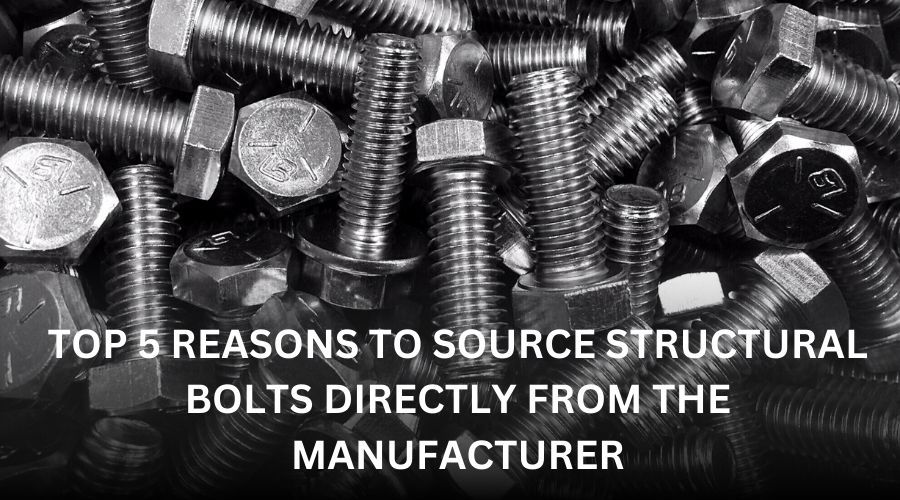What to Check Before Hiring a Structural Bolt Supplier
- PurunSteel Structure Manufacturing

- Aug 11
- 3 min read
Updated: Aug 13

Structural bolts may be small, but they hold the weight of some of the world’s most critical infrastructure. Choosing the wrong supplier can compromise safety, delay projects, and inflate costs. This guide explains what every construction manager, procurement officer, and engineer should check before hiring a structural bolt manufacturer or distributor.
Why Does Choosing the Right Structural Bolt Supplier Matter for Your Project?
A single defective bolt can weaken an entire structure. According to the American Institute of Steel Construction, fastener failures cause up to 8% of structural incidents in steel projects. The right supplier ensures compliance, reliability, and consistent quality, protecting both the structure’s integrity and your company’s reputation.
What Are Structural Bolts and Where Are They Used?
Structural bolts are high-strength fasteners designed for heavy-load connections in steel structures. They are widely used in bridges, high-rise buildings, steel space frames, and industrial plants. Their primary role is to create durable, vibration-resistant connections that withstand decades of service without loosening under stress.
How Can You Verify a Supplier’s Industry Certifications and Compliance?
Certifications prove a supplier’s manufacturing and testing processes meet global quality standards. Look for ISO 9001 for quality management, ASTM and ASME for U.S. compliance, and EN standards for European projects. Purun Steel Structure Manufacturing, for example, meets multiple certifications, ensuring its bolts pass strict tensile, hardness, and coating requirements.
How Do You Assess the Supplier’s Manufacturing and Quality Control Process?
An experienced structural bolt manufacturer invests in modern machining, automated inspection, and metallurgical testing. Ask about raw material sourcing, heat treatment methods, and surface protection like hot-dip galvanizing or zinc plating. Consistent batch testing with mill certificates guarantees every bolt meets the required grade, thread tolerance, and load capacity.
What Material Grades and Bolt Types Should They Offer?
Reputable suppliers provide multiple grades, such as ASTM A325, ASTM A490, and F3125, for different structural applications. Material options include carbon steel for cost efficiency, alloy steel for high strength, and stainless steel for corrosion resistance. The supplier should also stock bolts in varied diameters, lengths, and head shapes.
Can the Supplier Meet Your Project’s Quantity and Lead Time Requirements?
Large-scale infrastructure projects often require thousands of bolts delivered in multiple phases. Suppliers with automated production lines can fulfill bulk orders faster. Ask about their average lead time and emergency production capacity. Some suppliers maintain buffer inventory to handle urgent demands without disrupting other orders.
How Transparent Is Their Pricing and Contract Terms?
A transparent quote should detail the per-unit cost, packaging fees, shipping charges, and any import taxes. Long-term contracts may secure better pricing for recurring orders. For international supply, verify currency fluctuation clauses to avoid unexpected cost spikes. Negotiating these terms upfront reduces the risk of disputes later.
Does the Supplier Provide Technical Support and After-Sales Service?
In complex projects, engineers may need guidance on selecting the right bolt grade, thread type, or protective coating. A reliable supplier offers technical documentation, torque specifications, and installation guidelines. After-sales support should include replacement policies, defect handling, and quick resolution timelines for any quality issues.
What Is the Supplier’s Track Record and Reputation in the Market?
Past performance is the best predictor of future reliability. Check case studies, customer reviews, and references from previous projects. Purun Steel Structure Manufacturing, for instance, has supplied bolts for multiple large-scale infrastructure builds, proving its ability to meet tight deadlines and strict quality benchmarks.
How Strong Is Their Logistics and Packaging Process?
Poor packaging can cause rust, thread damage, or loss during transit. Look for suppliers that use anti-corrosion wraps, moisture-proof containers, and palletized shipments. For overseas orders, the supplier should have experience with customs documentation and compliant labeling to avoid border delays.
Can They Offer Customization for Special Project Needs?
Some projects require non-standard bolts, longer shank lengths, unique coatings, or specialized head shapes. A skilled steel space frame supplier can fabricate bolts to precise engineering drawings. This flexibility ensures compatibility with specialized steel structures without requiring on-site modifications that could delay installation.
Conclusion: How Do You Finalize the Right Structural Bolt Supplier Decision?
Choosing the leading supplier of structural bolts is not just about price; it’s about safety, reliability, and long-term performance. Verify certifications, assess manufacturing capabilities, evaluate logistics, and check references. The right structural bolt manufacturer becomes a strategic partner, ensuring your steel structures stand strong for decades.



Comments